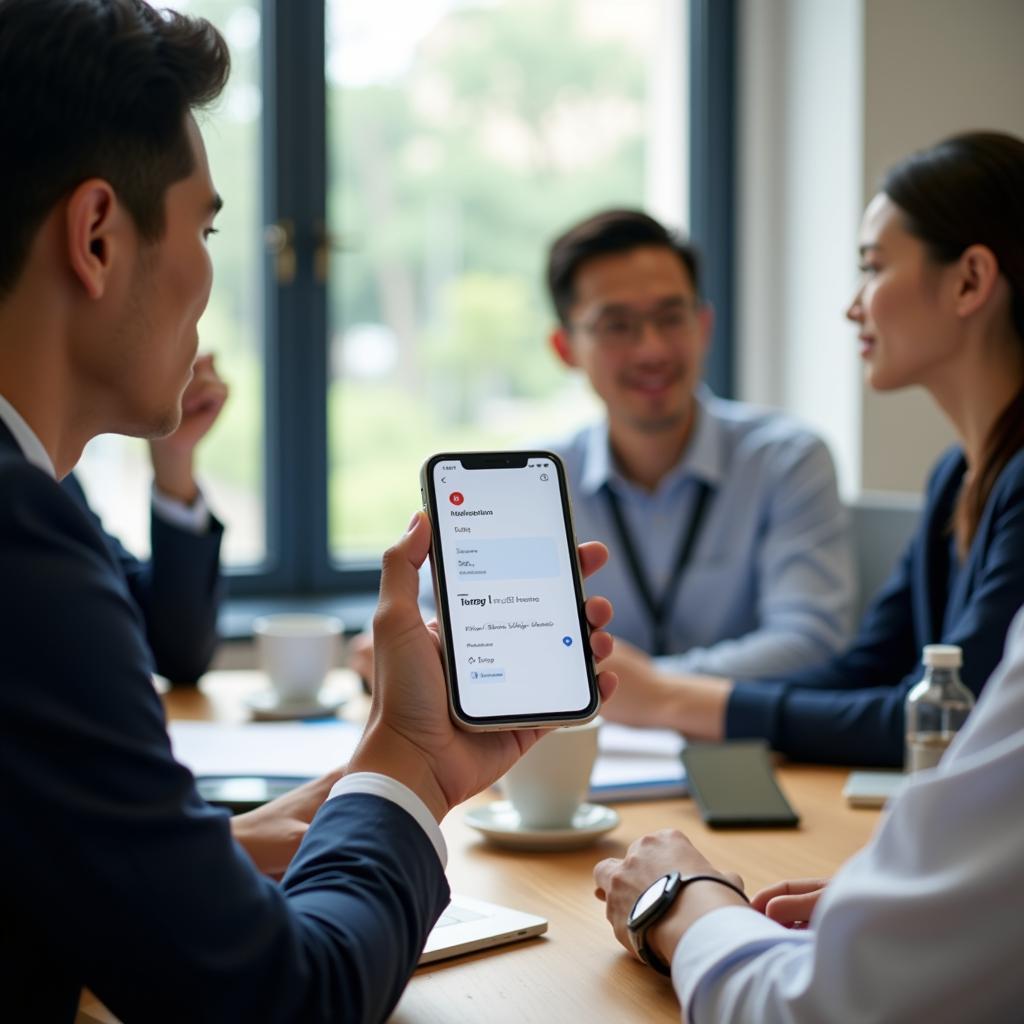Connecting with others is a vital part of doing business and building relationships in any part of the world. And when it comes to Southeast Asia, understanding the nuances of ASEAN contacting can make all the difference. This region, home to a diverse mix of cultures, languages, and business practices, presents unique opportunities and challenges for those seeking to establish connections.
This comprehensive guide explores the etiquette, strategies, and tools that can help you navigate ASEAN contacting with confidence and success. Whether you’re a seasoned professional or just starting out in the region, understanding the following insights will prove invaluable.
Building Bridges: Why ASEAN Contacting Matters
In today’s interconnected world, effective communication and collaboration are more important than ever. For businesses, entrepreneurs, and individuals looking to tap into the dynamism of Southeast Asia, mastering ASEAN contacting is essential for several reasons:
- Cultural Sensitivity: ASEAN is a melting pot of cultures, each with its own set of communication norms and expectations. Being aware of and respecting these differences is crucial for establishing rapport and trust.
- Language Barriers: While English is widely spoken in business settings, understanding key phrases in local languages can go a long way in building relationships.
- Building Trust: Building strong relationships is paramount in ASEAN cultures. Taking the time to understand your counterparts, their values, and their priorities will pave the way for successful partnerships.
- Navigating Business Practices: Business etiquette and protocols can vary significantly across ASEAN countries. Understanding these nuances will help you avoid faux pas and project professionalism.
Mastering the Art of ASEAN Contacting: Key Strategies
Successfully connecting with people in Southeast Asia requires a thoughtful approach that takes into account the region’s cultural diversity and business landscape.
- Do Your Research: Before reaching out, take the time to learn about the person you’re contacting, their company, and their cultural background. This demonstrates respect and shows that you value their time.
- Leverage Your Network: Personal connections are highly valued in ASEAN cultures. If you have mutual acquaintances, ask for an introduction.
- Attend Industry Events: Conferences, trade shows, and networking events offer excellent opportunities to meet potential partners and clients face-to-face.
- Be Patient: Building relationships takes time, especially in ASEAN. Don’t expect immediate results; focus on nurturing connections over time.
 Attending a Networking Event in Southeast Asia
Attending a Networking Event in Southeast Asia
Choosing the Right Channels: Digital Communication in ASEAN
Digital platforms have become indispensable for communication and networking in ASEAN. However, it’s important to understand the preferred channels in different countries and contexts.
- Email: Email remains a professional and reliable way to initiate contact, especially for formal introductions and business proposals.
- Messaging Apps: Popular messaging apps like WhatsApp, LINE, and WeChat are widely used for both personal and business communication in Southeast Asia. These platforms offer a more informal and immediate way to connect.
- Social Media: Platforms like LinkedIn, Facebook, and Twitter can be effective tools for building your professional network and staying updated on industry trends.
Expert Insight: “While email communication is still prevalent in Southeast Asia, it’s crucial to adapt to the growing popularity of mobile messaging apps,” says Anya Lim, founder of a Singapore-based marketing consultancy. “These platforms offer a more direct and personal way to connect with contacts, especially after an initial meeting.”
Cultural Sensitivity: Navigating the Do’s and Don’ts
- Greetings: Use appropriate titles and salutations. In many ASEAN countries, it’s customary to address people by their title (Mr., Ms., Dr.) followed by their last name.
- Gift-Giving: In some cultures, presenting a small gift is a gesture of goodwill, especially during initial meetings.
- Business Cards: Always exchange business cards with both hands as a sign of respect. Take a moment to review the card before putting it away.
- Body Language: Be mindful of your body language. Maintain eye contact, smile, and avoid gestures that could be misinterpreted.
Overcoming Language Barriers: Communication Tips
- Speak Clearly and Slowly: When communicating in English, speak at a moderate pace and enunciate your words.
- Use Simple Language: Avoid using jargon, slang, or overly complex sentence structures.
- Be Patient: If you encounter a language barrier, be patient and understanding.
 Utilizing Language Support Tools for Effective Communication
Utilizing Language Support Tools for Effective Communication
Building Trust and Long-Term Relationships: A Key to Success
Building strong relationships is at the heart of ASEAN contacting. Remember that trust and rapport are earned over time through consistent engagement and genuine interest.
- Follow Up: After an initial meeting or conversation, follow up promptly to express your gratitude and reiterate your interest.
- Stay Connected: Maintain regular contact with your network, even if it’s just to share an article or industry update.
- Show Genuine Interest: Take the time to learn about your contacts’ businesses, families, and interests.
Expert Insight: “In ASEAN, relationships are built on a foundation of trust and mutual respect,” says Rajeev Kumar, CEO of a technology firm operating in multiple Southeast Asian markets. “Investing time in getting to know people on a personal level is crucial for long-term success.”
Conclusion: Embrace the ASEAN Connection
ASEAN contacting, while presenting unique considerations, offers a gateway to a world of opportunity. By embracing cultural sensitivity, understanding local customs, and approaching communication with a genuine desire to connect, you can unlock the potential of this vibrant region. Remember that building strong relationships is a journey, not a destination. Embrace the journey, and you’ll find that the rewards of ASEAN contacting are well worth the effort.
Frequently Asked Questions (FAQs)
- What is the best way to initiate contact with someone in ASEAN?
While email is still widely used, consider using LinkedIn or asking for an introduction from a mutual contact for a more personalized approach.
- Are there any specific cultural customs I should be aware of when contacting someone in ASEAN?
Yes, it’s important to be mindful of titles and salutations, use formal language in initial interactions, and be prepared to engage in small talk before discussing business matters.
- Is it necessary to learn the local language to do business in ASEAN?
While English is widely spoken in business settings, learning a few basic phrases in the local language can go a long way in building rapport.
- What are some common mistakes to avoid when contacting someone in ASEAN?
Being overly direct or aggressive in your communication, neglecting to follow up after a meeting, and being impatient are all common mistakes to avoid.
- What is the best way to build trust with someone in ASEAN?
Be reliable, show respect for their culture and customs, and demonstrate a genuine interest in building a long-term relationship.
Need help navigating the complexities of ASEAN contacting?
Contact us today!
Phone: 0369020373
Email: [email protected]
Address: Thôn Ngọc Liễn, Hiệp Hòa, Bắc Giang, Việt Nam
Our team of experts is available 24/7 to provide you with the guidance and support you need to succeed in Southeast Asia.

